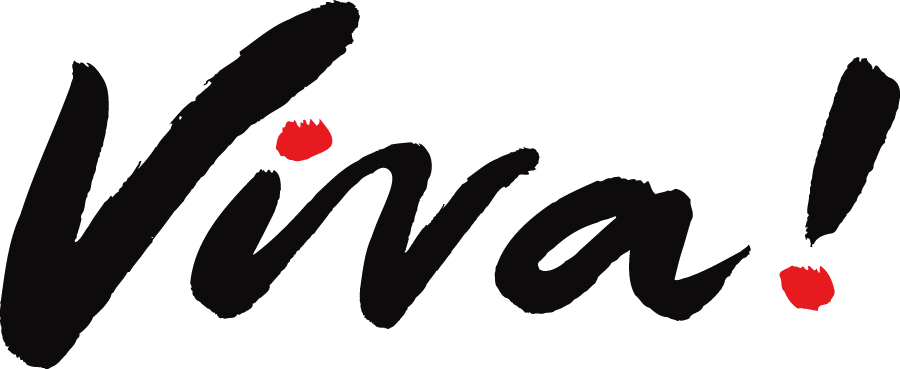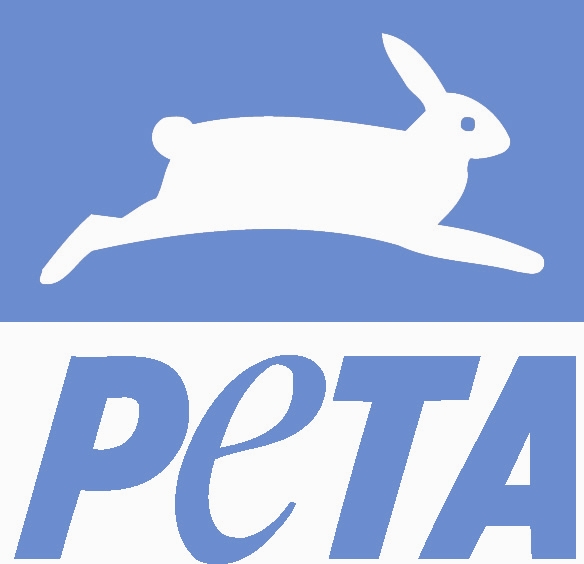 Hundreds of millions of animals are farmed for food in the UK each year and as a nation we have a duty to ensure that these individuals are treated with the respect they deserve – throughout their often unnaturally short lives and at the time of slaughter it must never be forgotten that these are living, breathing, feeling, thinking creatures. Poor practice and breaches in the law must be stamped out and Animal Defenders International therefore welcomes the campaign by Animal Aid to secure mandatory CCTV in slaughterhouses to ensure that regulations are strictly adhered to and where they are not swift action taken.
Hundreds of millions of animals are farmed for food in the UK each year and as a nation we have a duty to ensure that these individuals are treated with the respect they deserve – throughout their often unnaturally short lives and at the time of slaughter it must never be forgotten that these are living, breathing, feeling, thinking creatures. Poor practice and breaches in the law must be stamped out and Animal Defenders International therefore welcomes the campaign by Animal Aid to secure mandatory CCTV in slaughterhouses to ensure that regulations are strictly adhered to and where they are not swift action taken. Jan Creamer, President, Animal Defenders International
 Humane Society International/UK fully supports the mandatory installation of CCTV in slaughterhouses. While not a panacea, the use of CCTV under strict guidelines, and in combination with other measures, can help to eliminate poor or abusive handling and slaughter practices which result in serious animal suffering.
Humane Society International/UK fully supports the mandatory installation of CCTV in slaughterhouses. While not a panacea, the use of CCTV under strict guidelines, and in combination with other measures, can help to eliminate poor or abusive handling and slaughter practices which result in serious animal suffering. Mark Jones, veterinarian and executive director, Humane Society International/UK
 Viva! applauds and supports Animal Aid’s important campaign to shine a light on the worst excesses of brutality in British slaughterhouses.
Viva! applauds and supports Animal Aid’s important campaign to shine a light on the worst excesses of brutality in British slaughterhouses. Justin Kerswell, Campaigns Manager and Deputy Director, Viva!
 Scotland for Animals fully support Animal Aid’s initiative and commend your work in bringing the realities of the slaughter industry to the public. Together we can all overcome the self-interest of those making money from suffering and give animals at least a bare minimum of protection when going through the misery of the abattoir production process.
Scotland for Animals fully support Animal Aid’s initiative and commend your work in bringing the realities of the slaughter industry to the public. Together we can all overcome the self-interest of those making money from suffering and give animals at least a bare minimum of protection when going through the misery of the abattoir production process.John Patrick, Convenor, Scotland for Animals
 PETA wholeheartedly supports the campaign for mandatory closed-circuit television (CCTV) in all UK abattoirs. Undercover investigations have repeatedly revealed that animals on farms and in abattoirs are often thrown, kicked, punched or otherwise beaten before they are killed and dismembered. A conservative estimate is that 5 to 10 per cent of stuns which are meant to render animals unconscious prior to slaughter are unsuccessful the first time round, causing unimaginable suffering to the animals, who are then either electrocuted again or forced to face the final incision while conscious and terrified. These abuses should not be allowed to continue out of the view of the law. If the meat industry has nothing to hide, it should also support the installation of CCTV to protect both animals and abattoir workers from dangerous practices that may be harmful to them. Of course, their fear is that, as Paul McCartney said, “[i]f slaughterhouses had glass walls, we’d all be vegetarian”. Once people can see for themselves what hundreds of millions of intelligent, sensitive animals endure in these houses of death, those sausages might not look quite so appetising.
PETA wholeheartedly supports the campaign for mandatory closed-circuit television (CCTV) in all UK abattoirs. Undercover investigations have repeatedly revealed that animals on farms and in abattoirs are often thrown, kicked, punched or otherwise beaten before they are killed and dismembered. A conservative estimate is that 5 to 10 per cent of stuns which are meant to render animals unconscious prior to slaughter are unsuccessful the first time round, causing unimaginable suffering to the animals, who are then either electrocuted again or forced to face the final incision while conscious and terrified. These abuses should not be allowed to continue out of the view of the law. If the meat industry has nothing to hide, it should also support the installation of CCTV to protect both animals and abattoir workers from dangerous practices that may be harmful to them. Of course, their fear is that, as Paul McCartney said, “[i]f slaughterhouses had glass walls, we’d all be vegetarian”. Once people can see for themselves what hundreds of millions of intelligent, sensitive animals endure in these houses of death, those sausages might not look quite so appetising. Mimi Bekhechi – Associate Director, PETA UK
 We are supporting Animal Aid’s call for compulsory CCTV in all slaughterhouses. We believe that CCTV will provide a tool to improve animal welfare and it is already a requirement in RSPCA farm animal welfare standards. The welfare of farm animals is of great concern to British consumers and we hope the government will listen and make CCTV a compulsory requirement in all slaughterhouses to help protect millions of farm animals.
We are supporting Animal Aid’s call for compulsory CCTV in all slaughterhouses. We believe that CCTV will provide a tool to improve animal welfare and it is already a requirement in RSPCA farm animal welfare standards. The welfare of farm animals is of great concern to British consumers and we hope the government will listen and make CCTV a compulsory requirement in all slaughterhouses to help protect millions of farm animals. Eloise Shavelar, Campaign Manager, RSPCA
Joyce D’Silva, Compassion in World Farming Ambassador
 In many UK slaughterhouses, vets are unable to monitor slaughter without being seen themselves, making official checks far less effective. That is why CCTV should be routinely used to monitor animal welfare standards in all areas. If the industry cannot ensure comprehensive uptake of this basic monitoring tool, and ensure it is used consistently in all establishments, legislation is inevitable and increasingly urgent. The benefit of making CCTV compulsory would be to ensure that all critical points are constantly monitored, including unloading, lairage, stunning, bleeding and shackling. Ultimately this is a protection for workers and for animals, and government should be pro-active in promoting it.
In many UK slaughterhouses, vets are unable to monitor slaughter without being seen themselves, making official checks far less effective. That is why CCTV should be routinely used to monitor animal welfare standards in all areas. If the industry cannot ensure comprehensive uptake of this basic monitoring tool, and ensure it is used consistently in all establishments, legislation is inevitable and increasingly urgent. The benefit of making CCTV compulsory would be to ensure that all critical points are constantly monitored, including unloading, lairage, stunning, bleeding and shackling. Ultimately this is a protection for workers and for animals, and government should be pro-active in promoting it. Libby Anderson, Policy Director, Onekind
Dr Dan Lyons, CEO, Centre for Animals and Social Justice
 Several investigations over the past decade, including those undertaken by Animal Aid have shown, in no uncertain terms, that the treatment of animals in UK slaughterhouses often falls way short of the standards required. This represents a failure not only to meet the standards required by law but also of those that consumers buying animal products expect and the standards by which a modern, functional and morally healthy society should be happy to judge itself. The introduction of independently monitored CCTV footage in slaughterhouses will not in and of itself bring an end to the immense suffering endured by animals farmed for food but it would be a huge step in the direction of reducing suffering at the time of death and for this reason, AWP wholeheartedly supports Animal Aid’s campaign.
Several investigations over the past decade, including those undertaken by Animal Aid have shown, in no uncertain terms, that the treatment of animals in UK slaughterhouses often falls way short of the standards required. This represents a failure not only to meet the standards required by law but also of those that consumers buying animal products expect and the standards by which a modern, functional and morally healthy society should be happy to judge itself. The introduction of independently monitored CCTV footage in slaughterhouses will not in and of itself bring an end to the immense suffering endured by animals farmed for food but it would be a huge step in the direction of reducing suffering at the time of death and for this reason, AWP wholeheartedly supports Animal Aid’s campaign. Vanessa Hudson, Leader, Animal Welfare Party
 The Retreat Animal Rescue has saved thousands of animals from slaughter and we look forward to the day when no animals are killed so people can eat their bodies. While there are slaughterhouses, there will be brutality and it should be obvious that we must stop the acts of gratuitous violence Animal Aid filmed inside abattoirs. That’s why we support the campaign for mandatory CCTV inside slaughterhouses.
The Retreat Animal Rescue has saved thousands of animals from slaughter and we look forward to the day when no animals are killed so people can eat their bodies. While there are slaughterhouses, there will be brutality and it should be obvious that we must stop the acts of gratuitous violence Animal Aid filmed inside abattoirs. That’s why we support the campaign for mandatory CCTV inside slaughterhouses. Billy Thompson, Founder, The Retreat Animal Rescue
 Farm Sanctuary unequivocally supports Animal Aid’s campaign for mandatory CCTV in all UK slaughterhouses. If the UK’s meat industry is smart, it will also support this campaign as a way of ensuring that slaughter is as devoid of sadistic cruelty to animals as possible. It is a fact of human nature that behaviour improves when we know we are being watched, so CCTV in slaughterhouses might well be the best way of reducing farm animal suffering in slaughterhouses yet contemplated.
Farm Sanctuary unequivocally supports Animal Aid’s campaign for mandatory CCTV in all UK slaughterhouses. If the UK’s meat industry is smart, it will also support this campaign as a way of ensuring that slaughter is as devoid of sadistic cruelty to animals as possible. It is a fact of human nature that behaviour improves when we know we are being watched, so CCTV in slaughterhouses might well be the best way of reducing farm animal suffering in slaughterhouses yet contemplated. Bruce Friedrich, Director of Advocacy and Policy, Farm Sanctuary (USA)
 Extreme forms of animal cruelty within slaughterhouses is a world-wide issue. Over the last couple of years in Australia footage has surfaced showing pigs being beaten to death by a metal bar, repeated and unnecessary use of electric cattle prods, and turkeys being jumped on and kicked. The very nature of the slaughterhouse setting opens the doors to a plethora of welfare issues. The psychological pressure on those tasked with the role of killing should not be underestimated. Disassociation is common, and can certainly lead to the violence we are seeing caught on hidden cameras. Considering the low number of activist groups obtaining this footage, these kind of actions are likely to be underestimated in their magnitude. Independently monitored CCTV cameras may not eradicate all welfare issues, but they are certainly an essential ingredient to overcoming the extreme forms of illegal cruelty that regularly occur at these establishments.
Extreme forms of animal cruelty within slaughterhouses is a world-wide issue. Over the last couple of years in Australia footage has surfaced showing pigs being beaten to death by a metal bar, repeated and unnecessary use of electric cattle prods, and turkeys being jumped on and kicked. The very nature of the slaughterhouse setting opens the doors to a plethora of welfare issues. The psychological pressure on those tasked with the role of killing should not be underestimated. Disassociation is common, and can certainly lead to the violence we are seeing caught on hidden cameras. Considering the low number of activist groups obtaining this footage, these kind of actions are likely to be underestimated in their magnitude. Independently monitored CCTV cameras may not eradicate all welfare issues, but they are certainly an essential ingredient to overcoming the extreme forms of illegal cruelty that regularly occur at these establishments. Emma Hurst (Reg. Psychologist), Campaigns Manager, Animal Liberation NSW (Australia)
On the industrial production line, sentient beings are treated like mere products, in a process which is inherently violent and cruel. The meat industry should at least be transparent – unless it has something to hide.
Hila Keren, Animals Now (previously Anonymous for Animal Rights)

